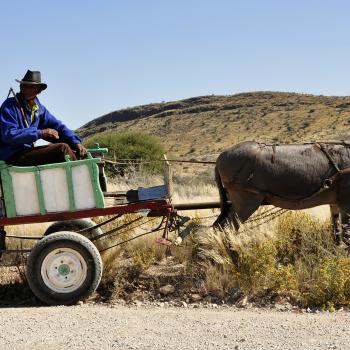And it’s Saturday again! Oke tells us that Marty is relieved that Clark will be away all day, but that “some of her emotional turmoil was seeping away simply because, deep down, she realized her anger toward Clark was unfounded.”
They were victims of circumstances, both of them, forced to share the same house.
Being angry with Clark was never rational. He didn’t kill Clem. It wasn’t his fault Marty found herself in this circumstance. But then, grief isn’t always rational, so I’ve always felt at least somewhat understanding of her response. Regardless, this anger is starting to fade.
Which is convenient, because Marty needs to fall in love with Clark before this book ends. It’s a romance, after all!
So! Saturday! The trip to town!
The supply list hadn’t been as long this time, but Clark had asked her to check through Missie’s clothing to see what the child would be needing for the winter. Marty did this and carefully added some items to the list. Then Clark stood Missie on a chair and traced a pattern of her small foot so he could bring back shoes for her growing feet.
Note that it was Clark who thought of Missie needing winter things. It feels odd to me that Marty didn’t think of this, despite the time she has spent thinking about preparing her own winter trousseau. But then, maybe her grief has made it difficult for her to focus on more than one thing at once?
but I have a more important question. Why doesn’t Clark just take Missie to town? That way she could try on shoes herself! I’m sure she’d enjoy the adventure of a trip to town even without the convenience of having her try new shoes on right there, but with that added in—why the blazes are they not just all going?
So, Marty settles into her usual early morning angst—she has to find something to do to occupy her time. It’s not like she’s opting out of the trip to town because she has something pressing to do. She doesn’t.
Marty decides to take things a bit easier after several grueling days of meat processing and soap making.
She did household chores for the day, sweeping and tidying each small room.
You hear that? A woman’s daily “household chores” on a farm involve sweeping and tidying the cabin, the end, full stop. I’m sure Ma Ingalls would be relieved to hear this!
“Today, Missie,” she spoke to the child, “I’m gonna finish my sewin’.”
Remember the cloth and sewing machine Clark brought home for Marty the previous Saturday? She spent much of Sunday sewing, starting after breakfast and quitting just past lunch to take a walk and butcher a chicken. The next day she did the household wash, and then spend the rest of the day sewing. The four successive days were all spent at the Grahams’ house slaughtering hogs, curing meat, and making soap; no sewing then.
I was kind of surprised, then, when Oke had Marty sit down her machine and look lovingly at all of her completed garments: two bonnets; underclothes (some with lace trim); two “nighties” with “extra tucks and sitting” and “dainty blue trim”; and two dresses.
Marty spent one morning and one afternoon sewing, using a sewing machine for the first time in her life—with no one to show her how—and somehow completed two bonnets, underclothes, two nightgowns, and two dresses, all with fancy tucks and lace. There’s no way.
She only has the “blue-gray” material that is Clem’s favorite color left; she decides to make a particularly nice dress out of it. She tells Missie that she’ll make something for her out of it too, and maybe a “dolly dress” as well.
Marty went to work. Missie played well on the rug by the bed, and the sewing machine hummed along. When Missie became restless, Marty was shocked to find the clock said ten past one.
My god. Look, I sew. I’ve even sewed while watching small children. It is not this easy.
First they want a drink of water. Then ten minutes later they want a snack. Five minutes after that they need help with something they’re playing with. Not ten minutes after that they leave the room, and five minutes later you realize you can’t hear what they’re doing, and you have to go check.
There’s a 50/50 chance they’ve just spilled orange juice on the floor or created some other mess, which you have to clean up, and then you drag them back to the room where you’re sewing. This time, you rig up a board across the door, or some chairs, to keep them in the room.
Suddenly, they’ve pull all of the pins out of your pin cushion before you even noticed they’d swiped it. You pick up all the pins, looking around in a panic to make sure you have them all. Just as you turn back to your machine, you realize they’ve fiddled with your sewing machine’s dials and settings. They ask if they can push the pedal and make the machine go.
You get out some new toys and set them on the rug again. This works for ten minutes, but now they want a drink of water again, and this time you have to climb over the chairs you put across the doorway. You settle them back at their toys. Five minutes later you realize they’ve started unloading the dresser. You decide not to stop them; at least they’re occupied.
But not Missie. Missie is magic. She has an unflagging interest in making meals for her dolly, and zero curiosity about anything else in her world.
It’s ten after one. Missie has spent the past four hours quietly playing with her dolly. She never asks for a snack or a drink of water, and Marty forgot she was there. Now, Marty feeds Missie lunch and puts her down for a nap.
The child fell asleep listening to the steady whir of the machine.
Um. Cool. Missie must have magic napping powers, because damned if I’d want to sew in the room with a napping two-year-old. I’d be scared shitless of waking that kid up. If you have any questions as to why, see above—it’s really difficult to make much headway sewing while watching an awake two-year-old. Nap time is worth its weight in gold.
Remember how I told you that Marty decided to make a particularly grand dress with this remaining fabric? When she finishes, it’s so gorgeous it takes her breath away. It has tucks and folds and is prettier than anything she’s ever had before. And she whipped it up in one day, while watching a living, breathing almost two-year-old. Someone here is magic.
But wait! She still has time left!
Eagerly she set to work on the small garment for Missie. She decided to make a small blouse from the white material that was left over from her underthings, with a jumper for over it from the blue-grey wool. She had enough to do the same for the worn little doll.
What? No.
That’s it: Marty is definitely a time traveler.
Children didn’t wear blouses and jumpers until the 1920s. In the 1860s—which we’ve pegged as the general period of this book, given the absence of trains and presence of sewing machines—Marty would have been dressing Missie more like this:

No jumpers.
The only indication we get in this passage that Missie is actually human, by the way, is this brief passage:
Missie, who had long since awakened from her nap, kept demanding to see the “pwetty,” and Marty’s work would be interrupted while she sewed her.
This didn’t stop Marty from finishing the blouse and nearly completing the jumper before hearing Clark enter the house and remembering—dad-burn—that she had completely forgotten about supper. Even worse—she’d let the stove go out. It was cold to touch. But not to worry! In the hour it takes Clark to finish the chores, Marty restarts the stove and whips up a passing supper.
There’s also this odd note:
Marty rushed around the kitchen. She remembered an old secret of her ma’s. If the menfolk’s come looking for their supper and you’re caught off guard, quickly set the table. That will make them think supper is on the way.
Marty starts to throw plates on, but then realizes that “a stove with a fire in it might be a bit more convincing.” I’m left wondering about Marty’s ma. So clearly, she did cook—they weren’t in a boarding house where they just ate what was served, and it wasn’t that they had servants. Marty just—what, was a tomboy, so she didn’t learn?
Marty doesn’t act like a tomboy, though. If she were meant to be a tomboy, I’d expect her to have shown some care about what’s outside the cabin. Maybe she’d spent her days in the stable with the horses, like Felicity in the American Girl books.
After supper Clark brings out the purchases he made, including anew coat, bonnet, and shows for Missie, which throws her into ecstasies of wonderment. There’s material, too, all set for Marty to sew it up into more twentieth-century outfits.
Missie runs to the other room and brings back the jumper to show Clark. His eyes get soft and his voice chokes up, presumably because he’s remembering all the “frocks” Ellen used to sew for Missie. There are no questions about time traveling.
But then, we’ve already concluded that there’s something otherworldly about Clark, what with his ability to single-handedly run a farm that ought to require a whole crew of farmhands.
Clark also gives Missie a picture book. She turns the pages, “exclaiming over and over her excitement at finding cows and pigs and bunnies in such an unlikely place.” I’m suddenly very curious about mid-1800s picture books.
Clark had bought himself some books, too, for the long winter evenings ahead. This was the first time Marty was aware that Clark was a reader.
Exactly how much did books cost at this time?
Clark had a package for her, as well, that would help pass the months ahead. It contained wool and knitting needles and pieces of material for quilt piecing, and he told her he had a sack of raw wool that he had stored until such time as it was needed.
Marty was thankful. She loved to knit, and though she had never quilted before, she was anxious to try her hand at it.
She sews but has never quilted. Okay.
My parents were the sort of homeschooling parents who think anything that is old is superior to the way things are today; they had me not only stitching samplers but also piecing together my own quilts by the time I was 12. Is it odd that Marty can sew but has never quilted? Quilting piecing is actually an excellent starting point for sewing, as it offers an opportunity to practice stitches and seams.
Regardless, Marty is excited for the new matters because they will “fill up a few more days.”
If only she could keep herself busy, perhaps she wouldn’t feel so lonely and bereft.
I understand this sentiment, I really do. I just never would have pegged a mid-1800s farm as a place where you had to find things to keep you busy.
Next week? Another Lord’s Day.
I have a Patreon! Please support my writing!















